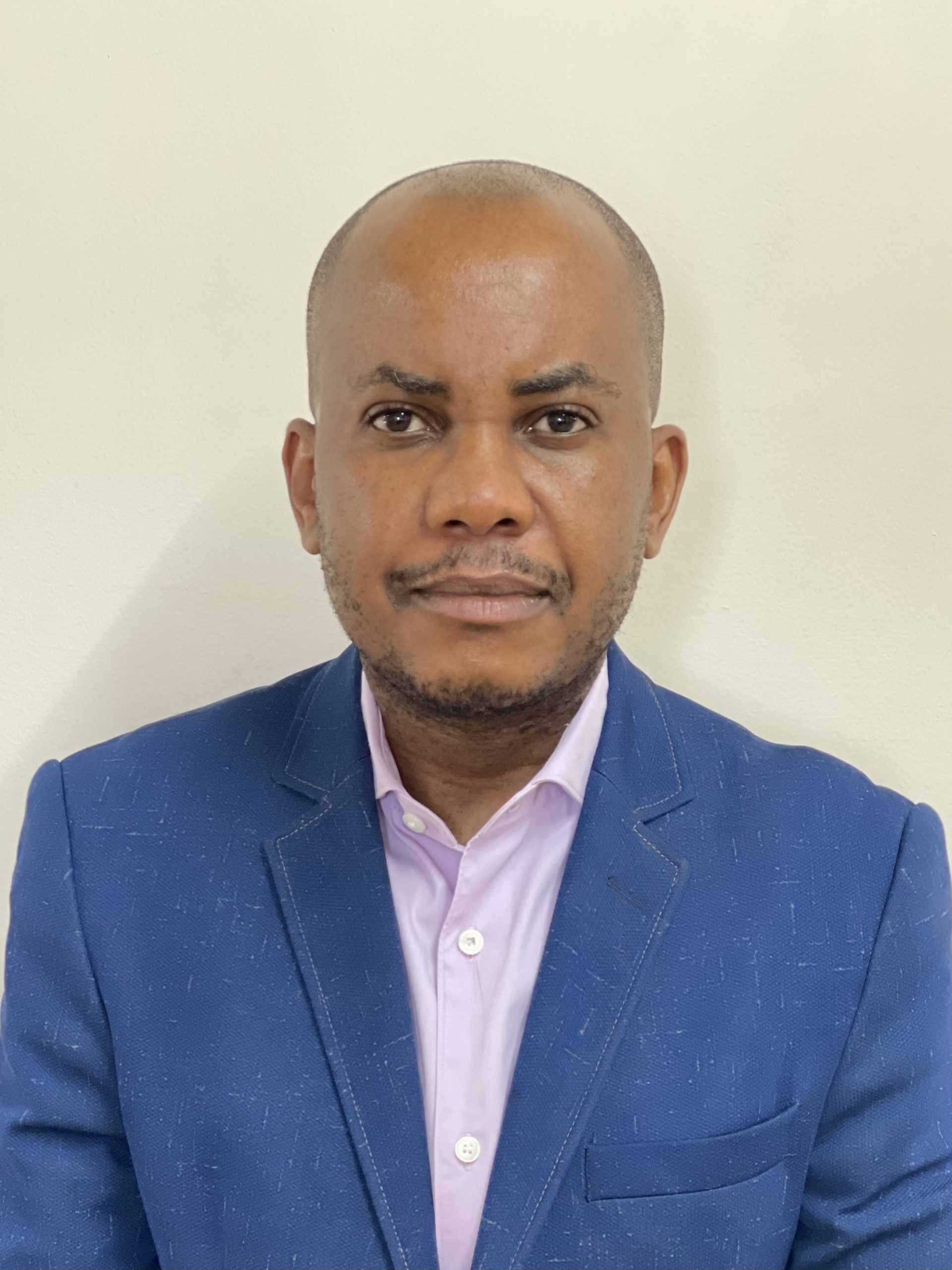Natália Bezerra Mota & Lebogang Phahladira Named the 2023 Global Schizophrenia Awardees

Dr. Mota is a computational psychiatrist and current professor at the Institute of Psychiatry (IPUB) at the Federal University of Rio de Janeiro, UFRJ. Having experience in multiple aspects of computational neuroscience and psychiatry research and practice with Post-Doctorate, Ph.D., and Master in Neuroscience and Bachelor in Medicine (residence and clinical practice in Psychiatry) at the Federal University of Rio Grande do Norte (UFRN). She has published scientific papers about cognition and the analysis of brain functioning in many directions: was a pioneer in the field of Computational Psychiatry applying graph theory to narrative analysis for clinical evaluation of psychosis, dementia, and psychedelics. She is also interested in how these narrative markers typically develop in children's speech and the sociocultural diversity associated. To conclude, she applies computational language analysis to understand dream reports and their neural mechanisms. She contributes to different research communities, such as SIRS (Schizophrenia International Research Society), and is an alumnus of three editions of the LASchool for Education (Latin America School for Education). Currently, she is the chief in science at Motrix, an educational startup developing solutions based on natural language processing tools to assess cognitive development. Forbes Magazine pointed her out as one of the 20th most powerful women in Brazil in 2020, and she was the first Brazilian scientist to be shortlisted by Nature as an Inspiring Scientist in 2019. Winner of the 2018 Abril & DASA Prize for Medical Innovation, innovation for medical diagnosis, and 2017 SUS – Brazil’s Ministry of Health Prize, science, technology, and innovation incentive. On the steering committee of Discourse in Psychosis, a research consortium that aims to harmonize speech data collection and analysis in psychosis cross-culturally.

Lebogang Phahladira, a specialist psychiatrist and senior lecturer, graduated with a PhD from Stellenbosch University in Cape Town, South Africa. He is a member of Psychosis Research Program of the Department of Psychiatry at Stellenbosch University. His current research interests include the long-term treatment outcomes following the first episode of psychosis and has published widely. He holds various leadership roles in his country and internationally including the serving on the Diversity Committee of SIRS. Dr Phahladira was recognized as an emerging leader in health and has received several grants and awards. He is the lead-clinician at the psychotherapeutic unit at Lentegeur Hospital and mentors many undergraduate and postgraduate students.
A Message from Natália Bezerra Mota, 2023 SIRS Global Schizophrenia Awardee
It is a great honor to be recognized by this community that always supports diverse opinions and knowledge. As a Brazilian psychiatrist and neuroscientist, from the beginning of my career path, I faced many challenges in translating scientific knowledge from different socio-contexts to Brazilian realities. Throughout the years, this made me understand that conducting studies in diverse cultural contexts could help us understand the complex interactions between biological and environmental factors related to symptoms and recovery. I pioneered in developing computational strategies based on natural language processing tools to study formal thought disorders using narratives as input. Since the initial studies, I did not restrict the method to linguistics corpora or rules to avoid language barriers in the method application. Moreover, I realize that language mirrors signs of mental health but also sociocultural diversities. These environmental factors change according to each cultural reality: in Brazil, we face huge socioeconomic inequities with a significant population lacking access to formal education; in other countries, migrations and acquiring a second language could be the most important barrier to interpreting the results using language tools. I believe that we could gain insights into psychosis by acknowledging the bio-social factors interactions in diverse cultural contexts and applying analytical strategies that help us understand behavioral diversity. To conclude, I want to express my gratitude for all the support and recognition from this community. This only strengthens my enthusiasm to keep working inside initiatives such as Discourse in Psychosis, fostering international collaborations and debates that could give us a more comprehensive understanding of psychosis.
A Message from Lebogang Phahladira, 2023 SIRS Global Schizophrenia Awardee
I am truly humbled by this recognition from my peers. A light, be it scarce, will shine on the on the African continent. I hope that the award will inspire many young people from all the disciplines of science to reach for the stars through quality scientific work that will advance Africa’s development. For the future, I am interested in examining the factors influencing long-term outcomes and the mechanisms to reduce the cost of treating psychotic disorders such as schizophrenia in poorer socio-economic settings. Further, we need to advance the knowledge within the consistent phenomenological theories conceptualizing schizophrenia as a long-standing “disorder of the self”. Investigating the psychological and biological underpinnings of insight or “illness awareness” may advance our understanding of this complex illness and provide new treatment targets. Climate change will have an impact on the Sub-Saharan region. It is anticipated that extreme weather changes will influence the pattern of presentation of mental health disorders, pathways to care and response to current treatment modalities. We need to use scientific tools to help prepare humanity and protect the most vulnerable I believe that the elements of research projects in our setting should include but not limited to capacity building, high moral and ethical standards, careful and meticulous use of resources and clinically relevant scientific questions that can help advance the discipline. I look forward to strategic international and local collaborations and partnerships with shared values.
A Message from Cheryl Corcoran, SIRS Awards Committee Deputy Chair

In 2012, Natália Mota published her seminal paper that used speech graphs to provide a quantitative measure of thought disorder, a companion to Brita Elvevåg’s quantification of incoherence in schizophrenia using word-embedding strategies such as latent semantic analysis or LSA. These publications were game-changers in schizophrenia research, offering a new way to objectively quantify language beyond clinical ratings and manual linguistic analyses. In 2012, there was no large text corpus available in Brazilian Portuguese, such that LSA was not an option for Dr. Mota. So, inspired by work that showed that human language is a “small world network”, Dr. Mota used graph analysis to find that measures of connectedness distinguished language in schizophrenia from that of mania, were highly correlated with negative symptoms, predicted schizophrenia diagnosis among individuals with first episode psychosis, and represented a failure of maturation in schizophrenia, with associations with functional impairment, slowing of processing speed, and clinical ratings of thought disorder. Dr. Mota has also expanded her research to include normal and abnormal development, showing that in children, these same measures of connectedness are associated with verbal memory, IQ, and theory of mind, and predictive of later reading ability. Dr. Mota now uses this tool throughout Brazil, including poor rural areas, to characterize risk for illiteracy, and to develop strategies for intervention, using digital strategies. She is a creative and generative leader in Brazil and worldwide in promoting women in science, and also in promoting social justice, especially for children.
It is such a pleasure to endorse Dr. Lebogang Phahladira as one of two winners of the Global Schizophrenia Award. What we believe we know about schizophrenia – its phenomenology and course, cost-effective treatment – comes largely from research in more affluent countries. But there has been a clear gap in our understanding, with respect to understanding schizophrenia in the diverse cultural contexts of African countries, many of which have low-income or lower-middle economies, as defined by the World Bank. There is also so much untapped talent for schizophrenia research among young people in Africa, who with the proper resources, would shine and make discoveries that we might not even be able to imagine. And along comes Dr. Phahladira, full of enthusiasm and energy, who will help shine a light on Africa, including both individuals with the lived experience of schizophrenia, and the scientists and clinicians committed to improving care and promoting recovery. Dr. Phahladira is a thoughtful leader, bringing phenomenology again to the forefront, and considering the complex challenge of low resources, especially in a changing climate, while adhering to the highest moral and ethical standards. I am excited to see where he will bring us in the next few years.
